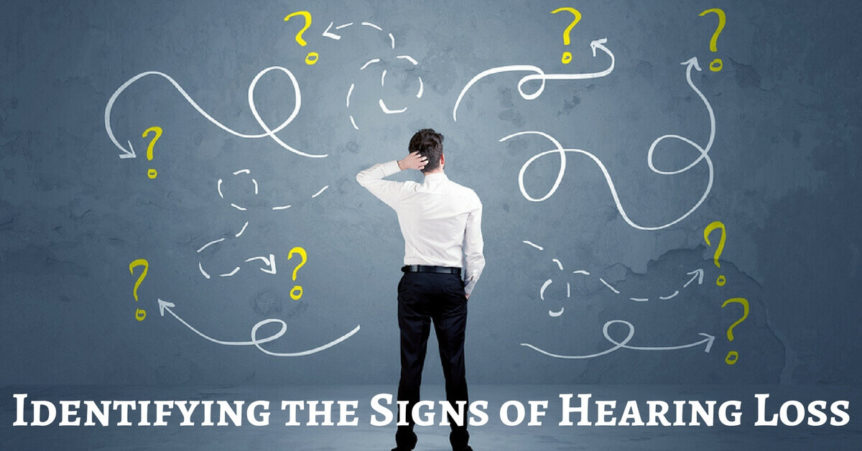- Custom vs. Over-the-Counter Hearing Aids: Finding the Right Fit for Your Ears - April 10, 2024
- Real Stories, Real Triumphs: Cochlear Implants Make All the Difference - March 15, 2024
- Common Misconceptions About Hearing Aids - February 14, 2024
Understanding Hearing Loss
Hearing loss affects an estimated 48 million Americans, or 20% of the population. Although any one at any age may experience hearing loss, it is most commonly found among older Americans. For people age 65 and older, one in three experience hearing loss. For people age 75 and older, 50% of people experience hearing loss.
Hearing loss is the third most common medical condition in the United States (after heart disease and arthritis), but because it is an invisible condition, it is often undertreated. More often than not, people may not even be aware they are experiencing hearing loss, while making changes to their lives to accommodate the condition.
Because hearing loss happens gradually, it may be easy for people to chalk up their changing hearing abilities to other factors – “Why is everyone mumbling?” “There must be something wrong with the speaker.” However, if difficulties continue to persist, we must consider another factor. The Hearing Loss Association of America reports that people wait an average of seven years from the time they first notice changes in their hearing abilities before they decide to seek treatment.
Seeking treatment for hearing loss is an important part of one’s overall health and well-being. Here, we review the ways in which you may identify a hearing loss and the recommended course of action.
Identifying the Signs of Hearing Loss
The Hearing Loss Association of America provides a quick survey for identifying the signs of hearing loss. If you answer yes to some or most of the following questions, you may have a hearing loss. Do you:
- Often ask people to repeat what they say?
- Have trouble hearing in groups?
- Think others mumble?
- Fail to hear someone talking from behind you?
- Turn up the volume on the TV or car radio?
- Have difficulty on the phone?
- Have trouble hearing your alarm clock?
- Have difficulty hearing at the movies
- Dread going to noisy parties and restaurants?
In social settings, are you:
- Embarrassed to talk openly about not being able to hear?
- Cutting out activities that you used to love but have become painful because you cannot join in fully anymore?
- Afraid to reveal your hearing loss at work in case it jeopardizes your job and your supervisor and coworkers may see you as less competent?
- Bluffing when out with friends in noisy restaurants?
- Feeling cut off from your young children because you cannot hear their high-pitched voices?
All of the above a signs of hearing loss. For many people with untreated hearing loss, the most common complaint is: “I can hear, but I can’t understand.” As hearing loss affects our ability to recognize and process speech sounds and noises in our environment, people with hearing loss may technically realize that there is sound, but they struggle to make sense of it.
Consequences of Untreated Hearing Loss
Hearing loss is a complicated condition because it involves many different factors, such as external noises to communication with others. As such, the consequences of leaving it untreated are also complicated.
With our most important relationships – family, friends, spouse, partner, loved ones – untreated hearing loss could lead to difficulties with communication and thus lead to misunderstandings and frustrations. Your loved ones may get frustrated that you’re always asking them to repeat themselves. In relationships where communication is key, and understanding one another is a healthy foundation, untreated hearing loss could cause rifts.
As a result, many people with untreated hearing loss end up isolating themselves, due to difficulties with communication. They may begin to avoid social settings, where it is difficult to hear speakers’ voices over background noise. Over time, this social withdrawal could cause much emotional pain, increasing the risk for stress, anxiety, and depression.
The same issues affect performance in the workplace. Studies have shown that people with untreated hearing loss haver lower earning power than colleagues with normal hearing abilities, or colleagues who treat hearing loss with the use of hearing aids.
Untreated hearing loss also affects your overall health and well-being. Researchers at Johns Hopkins have found that untreated hearing loss increases the cognitive load required by the brain to process muddled sound signals. This extra work could be the key to a potential increase for developing dementia.
Take the First Step toward Better Hearing Health
If you recognize the signs of hearing loss in yourself, or in a loved one, it is important to take the first step toward better hearing health. Schedule a hearing test and consultation with us at Better Hearing Center in Seattle. Our team provides comprehensive hearing services, from testing to hearing aid fittings. There’s no reason to live with untreated hearing loss! Contact us at Better Hearing Center today.

